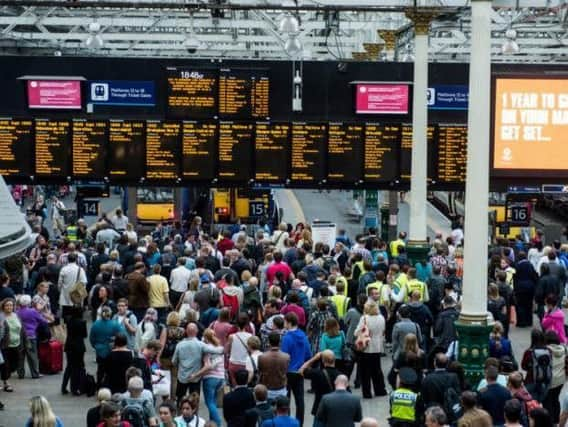Alastair Dalton: This is ScotRail's Achilles' heel


The railways are a hugely complex operation, prone to disruption from a myriad range of causes.
While drivers encountering hold-ups can often simply switch to another route, trains on their fixed tracks are a sitting duck for incidents such as breakdowns, vandalism, weather damage and, all too often, suicides.
Advertisement
Hide AdAdvertisement
Hide AdDisruption will always be a feature of the railways. In fact, at least in the short term, it may get even worse in Scotland as the record number of trains squeezed onto the network increases further with new fleets arriving over the coming months, whose reliability has yet to be tested in action.
Commuters know all that, or will be braced for it. Similarly, the traditional maxim among news editors was that the railways and disruption were synonymous, even accepted by those working in the industry.
It was summed up for me years ago by a newspaper billboard that had found its way into the ScotRail press office. “RAIL CHAOS OVER” it screamed, over which was scrawled “my arse”.
But for the wider public and politicians to be angry at delayed trains is to miss a more significant point – how passengers caught at the sharp end are kept informed when their journeys have gone awry.
As I’ve written many times, this has been ScotRail’s Achilles’ heel for years, and boy did this week highlight that.
Yes, the train operator has got better at it, as reflected in the twice-yearly official watchdog survey of passenger satisfaction, but it still has far to go.
The latest national rail passenger survey showed 51 per cent of the 300 people questioned were happy last autumn, up 13 percentage points on the previous autumn, but down three points on last spring.
However, while anecdotal evidence suggests ScotRail is making more of an effort, they still seem to be failing to communicate with passengers over the infamous practice of skipping station stops during disruption.
Advertisement
Hide AdAdvertisement
Hide AdTransport minister Humza Yousaf, while understanding the need for it on occasion, told MSPs the lack of adequate communication to warn passengers was “unacceptable”.
But what I found staggering was that the firm appears to have largely failed to convincingly explain to passengers why it happens.
ScotRail insists skipping stations is to minimise potentially far greater disruption to other trains on the line, but all those I spoke to for Scotland on Sunday’s investigation into the scale of the problem thought it was to make the performance figures look better.
It ended up with a ScotRail driver taking to Twitter to defend the practice!
As more people travel by train, the impact of disruption increases. A day after the minister’s rap, I was alerted to a broken down engineering train on the east coast main line near Edinburgh causing major delays not just by regular informants but by a man worried for his grandson heading to London for a Premiership match. The disruption was even mentioned on Thought for the Day on BBC Radio Scotland yesterday.
Rail workers at the front end of trying to resolve disruptive incidents and get trains moving rightly focus on task in hand.
But ScotRail likes to call its passengers “customers”, so they deserve to be treated as such. A previous managing director said staff should be as helpful as those at John Lewis. That was a decade ago, but it’s never too late.